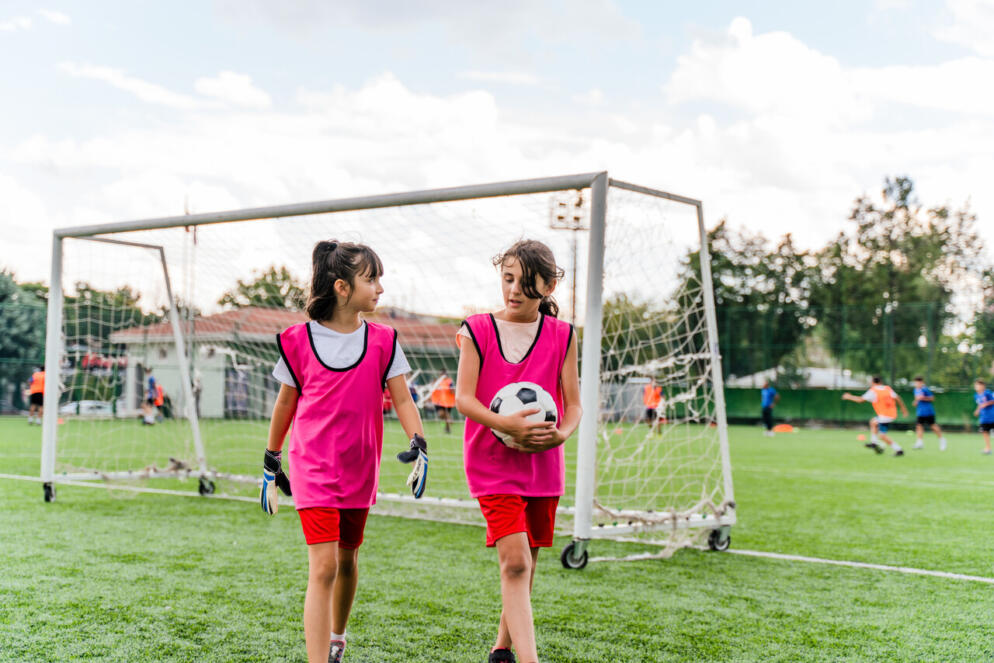
Parents do their best to be prepared for difficult conversations with their children. But what if a child chooses to disclose abuse or neglect to you? Do you know what to say? Do you know how to respond?
It’s crucial to center the needs of a child when they share what they have experienced. And while it may be challenging to hear what the child has to say, it’s important to remember that they chose to talk to you for a reason. They trust you and believe you can help.
At the U.S. Center for SafeSport, we take seriously our role of preventing abuse in sport. We educate parents, guardians, coaches of youth athletes and others so they can be aware of abuse and know how to respond if it occurs.
The fact is there’s no one “right” way to respond. Responses can (and should) differ based on factors that include your relationship, their age, and your own reporting responsibilities. Our tools help you navigate abuse disclosures so you can be prepared to show up for any young athlete who needs your support.
Building a foundation of trust and openness.
It’s important for children to have trusted adults in their lives, and to trust themselves. By talking openly and leading by example, you can support a child in learning:
- how to set and maintain boundaries while supporting the boundaries of others,
- to recognize when they feel scared, hurt, confused, or uncomfortable, and
- that they can have honest conversations about safety with you and other trusted adults.
Responding appropriately matters.
While some young athletes might tell you about abuse directly, abuse disclosures aren’t always straightforward. A child might say or do something that makes you suspect they’ve been neglected or abused, or that abuse has happened to another child. Maybe there are signs you notice—physical signs like bruises or psychological signs like being anxious or depressed before or after practice.
Regardless of how, if a child comes to you to disclose abuse, it suggests that they trust you. So, before you respond, take a moment to realize that how you respond can (and should) differ based on several factors:
- Your relationship with the child
- The child’s age
- Your own reporting responsibilities
Five principles to keep in mind.
Whether you’re driving the carpool to track practice or coaching the youth hockey team, you can tune in to how athletes are feeling and acting. As a trusted parent or adult, an athlete might tell you something troubling—maybe an assistant coach repeatedly yelled at them during practice or maybe they’re being bullied by their teammates.
Keeping a few principles in mind can help you make the situation easier for everyone:
- Listen with empathy. Let them tell you at their own pace and give you the details they want to share. Keep your facial expressions and body language open and nonjudgmental and give them your complete attention.
- Be supportive. Thank them for telling and trusting you. Let them know that you understand it was probably hard to talk about, but you’re glad they did.
- Know your role. Remember, you’re not a counselor or investigator. Don’t ask leading questions or try to assess if the information is true. Also, don’t make any promises about what will happen or what others will do.
- Remind them you’re here to help. Let them know you’re here to help and there are others who can help as well.
- Tell them what you will do next. Let them know that you’ll need to make an official report and explain who else you’ll need to tell.
Some helpful phrases you can use.
Start by recognizing that it takes courage to speak up about abuse or neglect. Use the following phrases to help the athlete feel supported and safe throughout the process:
- Thank you for telling me this—you are very brave.
- It is not your fault.
- I want to help you.
- You don’t have to tell me anything that you don’t want to.
- I care about your safety. Let me tell you what I am going to do next.
- This is a serious situation. I need to tell some other adults to help you be safe.
Keep the communication clear and open and always talk to the child using words they can understand. Be supportive, remind them that they’re not alone, that you care about them, and that you’ll do everything you can to help to keep them safe.
Sport should be an opportunity for youth athletes to develop friendships, learn new skills, and increase their self-confidence. As a parent or guardian of a youth athlete, or as a youth coach, you can help create positive, respectful settings that are defined by kindness and support. To learn additional ways you can respond to disclosures of abuse, check out Talking with Kids about Abuse from our Prevention Education Series, or download the Responding to Abuse Disclosures resource.
If you or someone you know has experienced abuse or misconduct in or related to sport, you can make a report to the U.S. Center for SafeSport: https://uscenterforsafesport.org/report-a-concern/
Additional support resources for anyone who has experienced sexual abuse or violence are available via RAINN’s 24/7 online hotline or by calling 800-656-HOPE (4673).
For anyone in crisis, the Suicide Prevention Lifeline provides 24/7 free and confidential support at 988lifeline.org or by calling 988.








